Alphabet familiarity Normal Alphabet Worksheets for Ages 3-6
7 filtered results
-
From - To
Introduce your little learners to the world of letters with our engaging Alphabet Familiarity Worksheets designed specifically for ages 3-6! These printable resources help children develop vital letter recognition skills through fun and interactive activities. From tracing and coloring to matching and identifying, each worksheet encourages creativity and early literacy development. With a focus on normal alphabet familiarity, our worksheets provide a solid foundation for future reading and writing skills. Enhance your preschool or kindergarten curriculum with these delightful, easy-to-use worksheets that make learning the alphabet enjoyable and effective. Nurture your child's love for letters today!
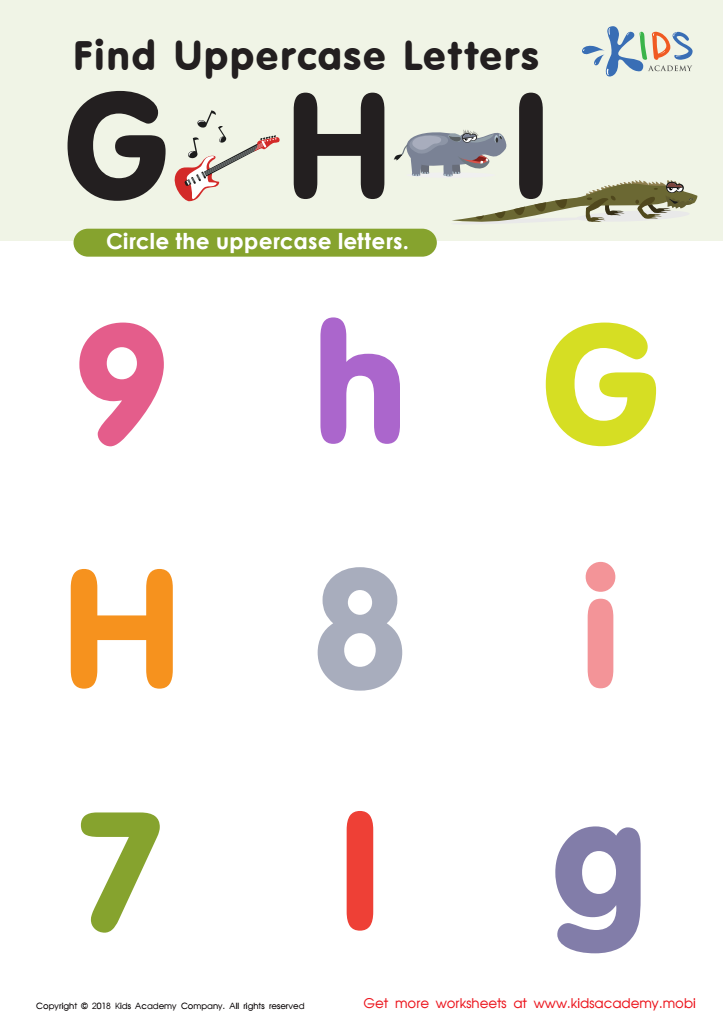

Find Uppercase Letters G, H, and I Worksheet
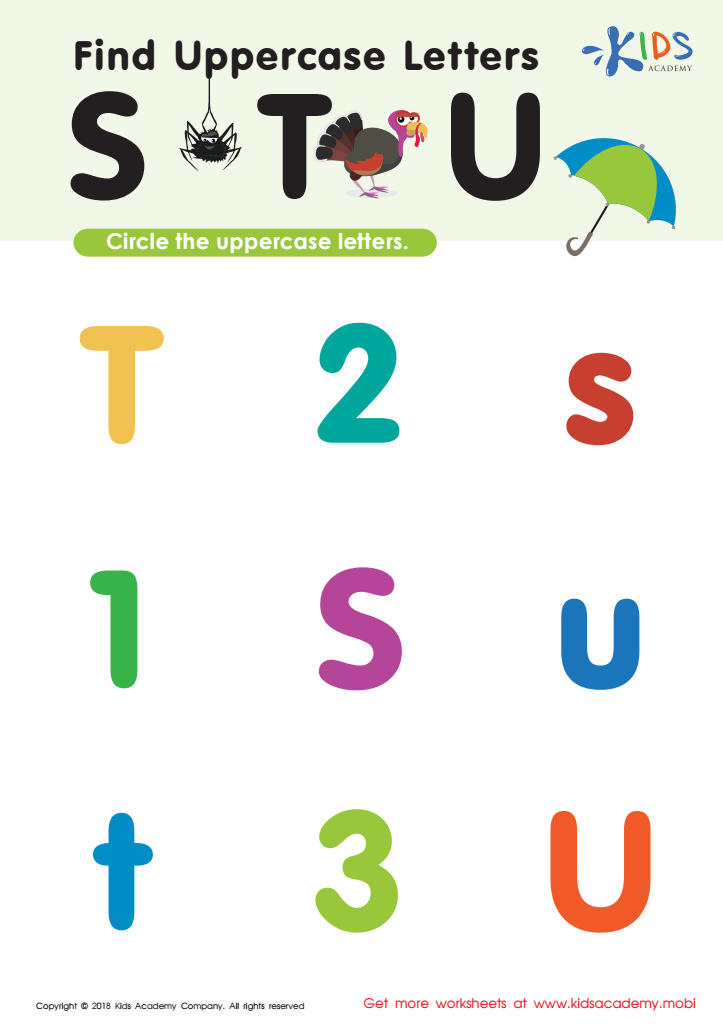

Find Uppercase Letters Worksheet
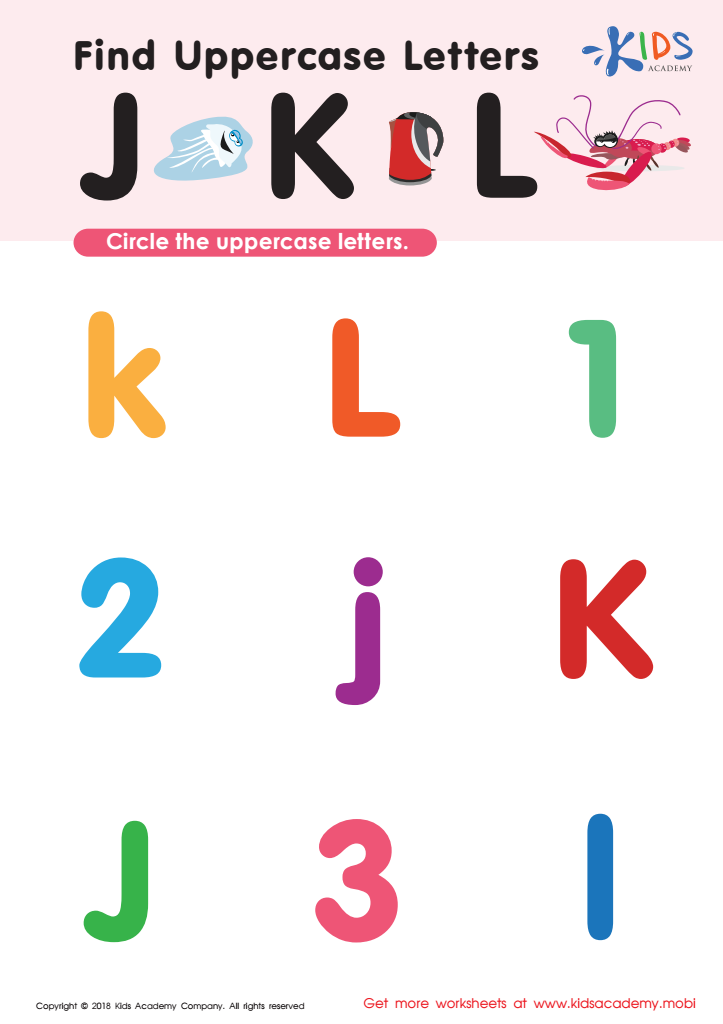

Find Uppercase Letters J, K, and L Worksheet
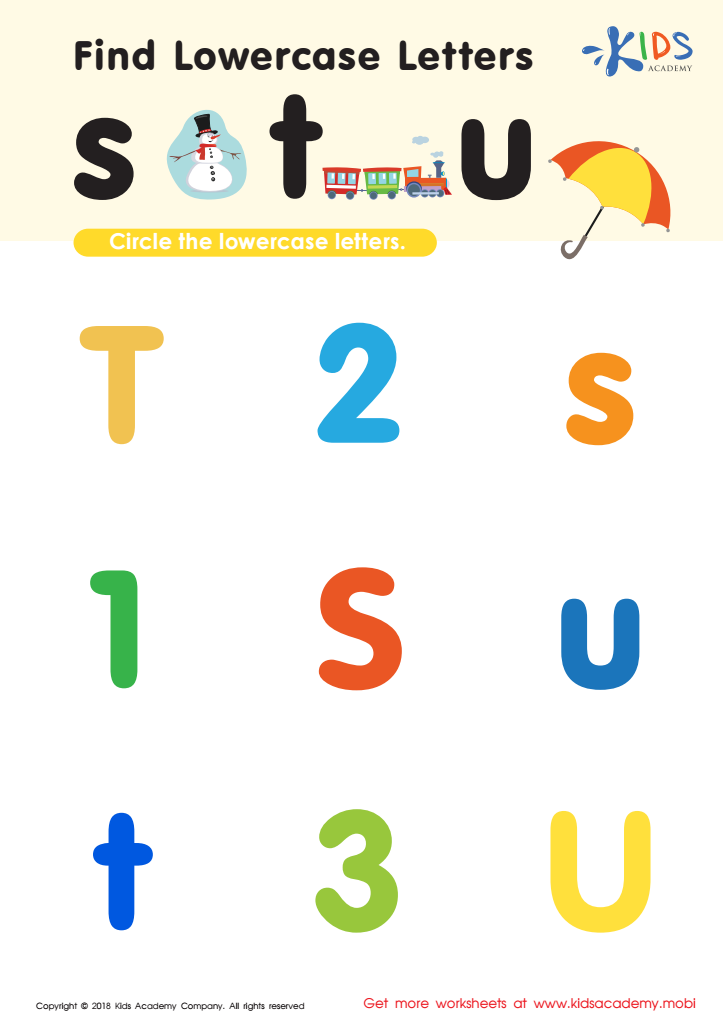

Find lowercase Letters s t u Worksheet
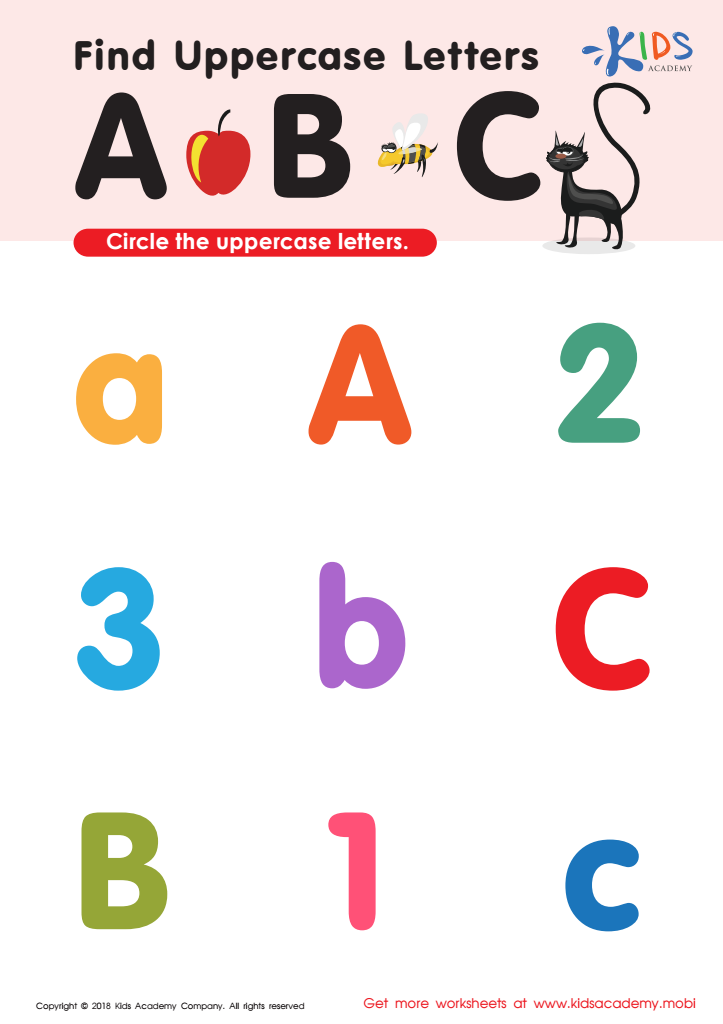

Find Uppercase Letters A, B, and C Worksheet
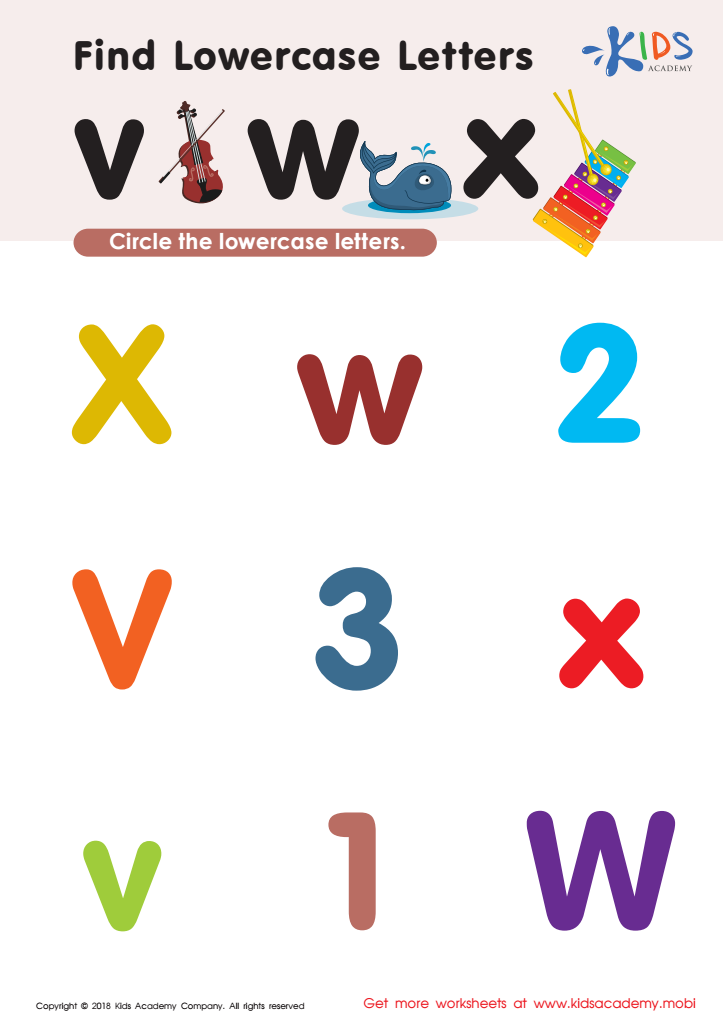

Find Lowercase Letters v w x Worksheet


Phonological Awareness: Assessment 1 Worksheet
Alphabet familiarity is crucial for children aged 3-6 as it lays the foundation for literacy and overall language development. At this young age, children are naturally curious and eager to learn, making it an ideal time to introduce them to letters and their sounds. Knowledge of the alphabet not only enhances reading skills but also aids in spelling and writing as they progress in their education.
For parents and teachers, fostering alphabet familiarity supports children's cognitive growth and communication abilities. Engaging activities such as singing the alphabet song, playing letter games, and reading books that emphasize letters can make learning enjoyable. This active involvement strengthens the bond between adults and children, reinforcing positive attitudes towards learning.
Additionally, familiarity with the alphabet often correlates with success in school readiness. Children who know their letters are likely to transition smoothly into kindergarten and beyond, ultimately impacting their academic confidence and self-esteem. Therefore, parents and teachers play a pivotal role in cultivating an environment that promotes alphabet knowledge, making literacy not just a skill but a foundation for lifelong learning and exploration. In essence, prioritizing alphabet familiarity at this formative stage unlocks a world of possibilities for young learners.
 Assign to My Students
Assign to My Students




















